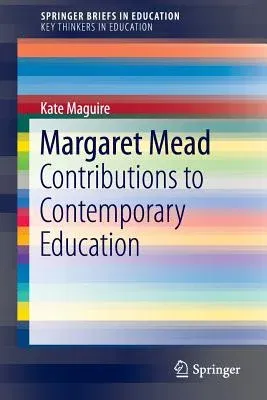Kate Maguire
(Author)Margaret Mead: Contributions to Contemporary Education (2015)Paperback - 2015, 23 March 2015

Qty
1
Turbo
Ships in 2 - 3 days
In Stock
Free Delivery
Cash on Delivery
15 Days
Free Returns
Secure Checkout
Part of Series
Springerbriefs in Education / Springerbriefs on Key Thinkers
Part of Series
Springerbriefs in Education
Part of Series
Springerbriefs on Key Thinkers in Education
Print Length
96 pages
Language
English
Publisher
Springer
Date Published
23 Mar 2015
ISBN-10
9401793085
ISBN-13
9789401793087
Description
Product Details
Author:
Book Edition:
2015
Book Format:
Paperback
Country of Origin:
NL
Date Published:
23 March 2015
Dimensions:
23.39 x
15.6 x
0.56 cm
Genre:
Education
ISBN-10:
9401793085
ISBN-13:
9789401793087
Language:
English
Location:
Dordrecht
Pages:
96
Publisher:
Series:
Weight:
158.76 gm

